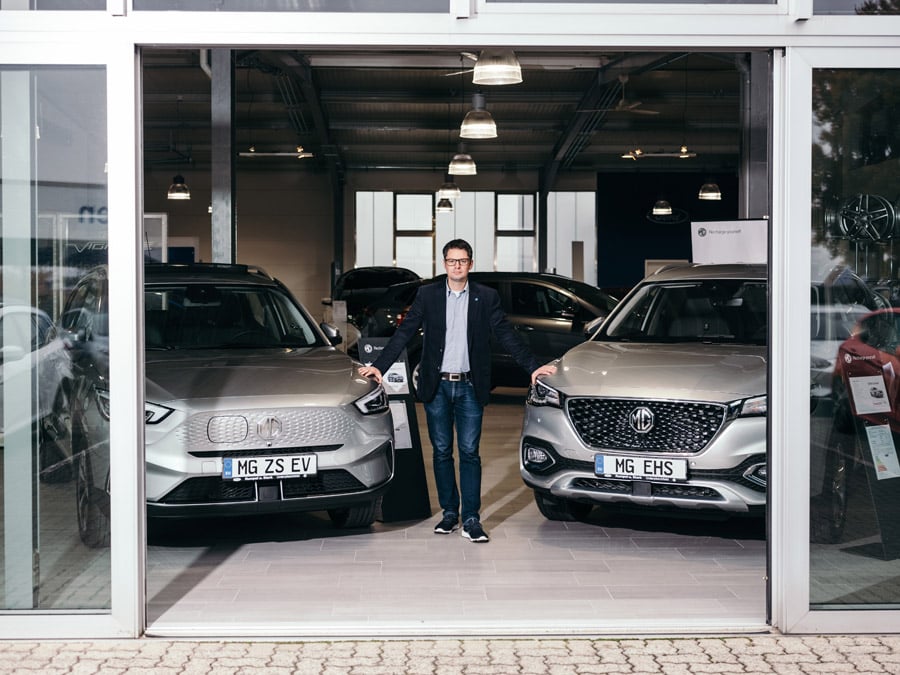
How Chinese electric vehicles are giving Europe's automakers a run for their money
Foreign automakers like Volkswagen, Mercedes-Benz or General Motors sell millions of cars in China, so they can hardly complain when Chinese automakers encroach on their turf
 Bastian Stark at his dealership that sells MG electric and hybrid vehicles in Unterpleichfeld, Germany, Oct. 28, 2021. By selling battery-powered S.U.V.s and luxury sedans in places like Germany and Norway, China is striving to become a force in the global auto industry. (Felix Schmitt/The New York Times)
Bastian Stark at his dealership that sells MG electric and hybrid vehicles in Unterpleichfeld, Germany, Oct. 28, 2021. By selling battery-powered S.U.V.s and luxury sedans in places like Germany and Norway, China is striving to become a force in the global auto industry. (Felix Schmitt/The New York Times)
FRANKFURT — The name MG used to be synonymous with spirited but finicky sports cars from Britain. Nowadays the iconic octagonal badge serves a different kind of motoring ambition: China’s push to become a big player in the global auto market.
SAIC Motor, one of China’s Big Four automakers, bought the MG brand in 2007 and is stamping it on a line of electric SUVs on sale in Germany and other European markets. MG is an example of how Chinese carmakers are exploiting the shift to electric cars to challenge the American, European and Japanese carmakers that have long dominated the industry.
Chinese automakers are arriving as electric cars surge in popularity, accounting for almost 10% of new car sales in Western Europe, and consumers are in a mood to buy, with savings built up during the pandemic. At the same time, car manufacturers are cutting back production because of shortages of microprocessors.
MG already has 350 dealers in 16 European countries and is still expanding. Two other Chinese automakers, Nio and BYD, are moving into Europe by way of Norway, the world’s most electrified large car market.
Nio, based in Shanghai, opened a dealership in Oslo, Norway, at the end of September, the company’s first outlet outside China. BYD, based in Shenzhen, delivered an electric SUV called the Tang to the first Norwegian customer in August.
©2019 New York Times News Service







